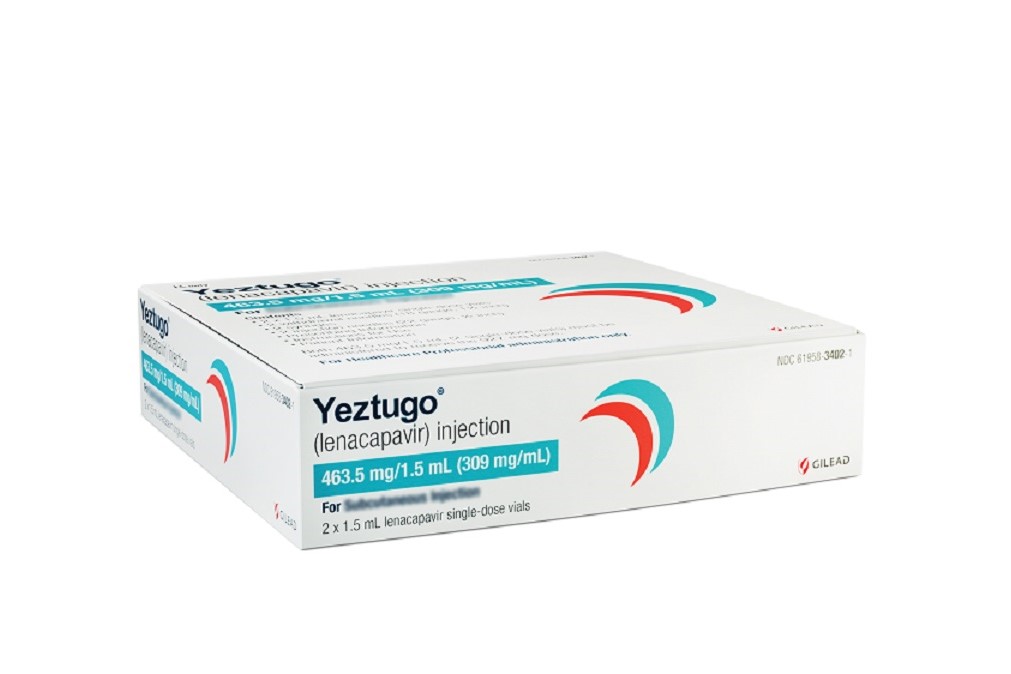
A Gilead Sciences drug that protects against HIV infection has won a highly anticipated FDA approval, becoming the first medication for HIV prevention available as a twice-yearly injection.
The regulatory decision announced Wednesday covers use of the antiviral drug, lenacapavir, for HIV-1 pre-exposure prophylaxis (PrEP). The approval is for adults and adolescents weighing at least 35 kg (about 77.1 pounds) who are at risk of sexually acquired HIV-1. For this indication, Gilead will market the drug under the brand name Yeztugo.
Gilead has experience with PrEP drugs. The company’s Truvada, approved in 2012, was the first PrEP medication. Descovy, a Gilead PrEP drug developed to cause fewer side effects, won its approval in 2019. Both Truvada and Descovy are once-daily pills. Gilead cites Centers for Disease Control and Prevention data showing that about 36% of people in the U.S. who are eligible for PrEP were prescribed a PrEP drug. Factors contributing to the limited uptake of these medications include difficulty sticking to the drug regimen or stigma associated with these products. Twice-yearly administration of Yeztugo is hoped to improve uptake and adherence to PrEP.
“A twice-yearly injection could greatly address key barriers like adherence and stigma, which individuals on more frequent PrEP dosing regimens, especially daily oral PrEP, can face,” Dr. Carlos del Rio, professor of medicine at the Emory University School of Medicine and co-director of the Emory Center for AIDS Research, said in Gilead’s announcement of the approval. “We also know that, in research, many people who need or want PrEP preferred less frequent dosing.”
Lenacapavir is a small molecule designed to inhibit the capsid, the protein shell that encloses a virus’s genetic material. This drug is a long-acting HIV-1 capsid inhibitor. It has been available in the U.S. since 2022, approved for treating people whose HIV has become resistant to multiple medications. In this indication, the Gilead drug is marketed under the brand name Sunlenca.
Gilead’s submission of lenacapavir for PrEP was based on two Phase 3 clinical trials that compared the drug against either Truvada or Descovy. Results from both studies showed that twice-yearly Yeztugo was superior in preventing HIV infections. The most common adverse effects reported in the clinical trials were injection site reactions, headache, and nausea.
Yeztugo’s label carries a black box warning that it comes with the risk of drug resistance in individuals with undiagnosed HIV-1 infection. Because of that risk, a patient must be tested for HIV-1 prior to starting Yeztugo and with every subsequent dose of the drug. The label states that those who acquire HIV-1 while receiving Yeztugo must transition to a full HIV-1 drug regimen.
HIV is the biggest therapeutic area for Gilead, accounting for $19.6 billion in product revenue in 2024, an 8% increase over sales in the prior year. Descovy accounted for $2.1 billion of the 2024 sales total. Sales figures for Truvada, which now faces generic competition, are no longer broken out in the company’s annual report.
Gilead set a $28,218 annual list price for Yeztugo in the U.S. The company has global ambitions for its newest HIV drug. Regulatory submissions have been filed for lenacapavir for PrEP in Europe, Australia, Brazil, Canada, and South Africa. There are some countries that rely on FDA approval for a regulatory submission. Gilead said it has also filed applications for the drug in such countries, which include Argentina, Mexico, and Peru.
“This is a historic day in the decades-long fight against HIV,” Gilead CEO Daniel O’Day said in a prepared statement. “ Yeztugo is one of the most important scientific breakthroughs of our time and offers a very real opportunity to help end the HIV epidemic.”










